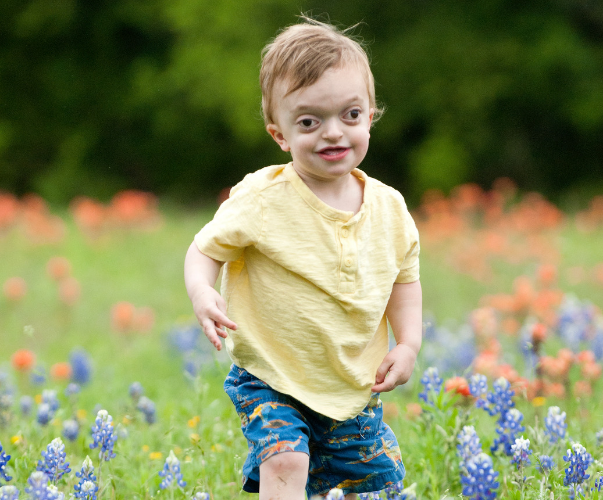
Most people probably have never heard the term “craniofacial disorder,” yet an estimated 600,000 individuals in the United States have been diagnosed with one. One of these individuals is my son. In its simplest terms, a craniofacial condition is a malformation of the face and skull that is present at birth or appears later in life due to an accident or illness.
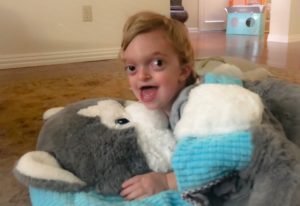
Fifteen years ago, the Children’s Craniofacial Association (CCA) began observing September as Craniofacial Acceptance Month. Their goal is to increase inclusion for children and adults with facial differences. The CCA believes that the best way to foster acceptance for the craniofacial community is for the general public to see people with these differences and hear their stories.
With that goal in mind, I want to do my part and share my son’s story and pictures with my community. I hope to help the CCA in its mission to make the world a better place – one where children will choose kindness when they meet people with facial differences.
The day my son was born, the doctors immediately thought he might have a syndrome due to the unusual appearance of his eyes.
A few months later, specialists diagnosed him with Pfeiffer syndrome. Pfeiffer syndrome causes the skull bones to fuse prematurely, which prevents the brain from growing in its normal pattern. He is only two years-old and he has already undergone a surgery called a cranial vault remodeling. During this operation, his skull was cut open and pieced back together in order to give his young brain room to grow.
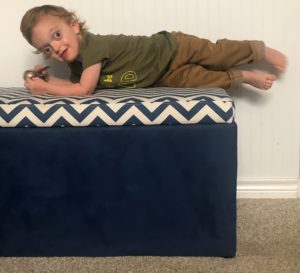
My son deals with several other ongoing physical issues related to his syndrome – misaligned vision, breathing issues and hearing loss. Cognitively, he is on par with typical two year-olds.
The health-related aspects of Pfeiffer syndrome are extremely difficult to deal with, but equally as hard are the social struggles. Due to his syndrome, my son’s eyes appear extremely large and this tends to take people by surprise.
As a result, he constantly gets stared at and called names.
Last week we went to a doctor’s appointment and while he was traipsing about in the communal play area, a child walked in and exclaimed, “He’s yucky!” At a recent birthday party a child walked up to my husband and I, pointed at our son and told us he was ugly.
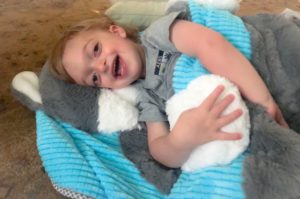
The worst encounter we have endured so far happened on a playscape in south Austin. Another child noticed his unique appearance and walked up to him and started loudly talking about the size of his eyes. My husband patiently explained that our son was born different. He tried to divert the child’s attention by telling him that our son likes Mickey Mouse and Paw Patrol and would love to play.
Sadly, the child couldn’t let it go. I saw the boy talking to his friends about my son and a few minutes later, he was surrounded by kids gawking at him and calling him “creepy” and “scary.”
The part that was especially heartbreaking was that he just stood there smiling and staring back at them, too young to realize he was being teased.
In celebration of Craniofacial Acceptance Month, I challenge you to spend half an hour one day this September teaching your children about facial differences. Read a book together on the topic, watch a video or check out an Instagram account. Talk to your children about acceptance and kindness.
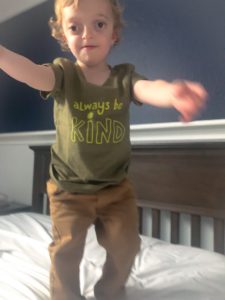
There are so many different facial disfigurements- birthmarks, cleft palates, scars, syndromes – that it’s probably hard to know where to start. Here are some great resources to aid you in this endeavor:
- Websites:
- Children’s Craniofacial Association
- FACES: The National Craniofacial Association
- The Happiness Syndrome (this is my personal blog about my son’s journey with Pfeiffer syndrome)
- Instagram accounts:
- Special Books by Special Kids @specialbooksbyspecialkids
- Changing Faces @changingfacesuk
- AboutFace @aboutfacecanada
- Changing the Face of Beauty @changingthefaceofbeauty
- Books:
- Wonder by R.J. Palacio
- We are all Wonders by R.J. Palacio
- The Courage to be Kind by Jenny Levine and Rena Rosen
- Spaghetti in a Hot Dog Bun by Maria Dismondy
- Videos/Movies:
As a community, I hope we can all slowly and steadily chip away at creating a more tolerant world. A world where kids with craniofacial syndromes are not teasedbut asked to play instead.








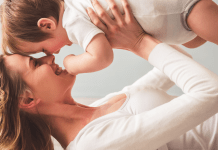

Thanks for these brilliant resources. I hadn’t heard of this condition but will definitely look at these with my two children to help them be more aware & ready to play when they do meet a child who looks different.
Elizabeth!
So proud about what you are doing to promote acceptance for this syndrome. You are such a great Mom!💙💙
Tina McDermott
Elizabeth!
So proud about what you are doing to promote acceptance for this syndrome. You are such a great Mom!💙💙
Tina McDermott
Thank you so much, Tina! I hope all is wonderful in your world ❤️
♥️♥️♥️
Thank you for sharing! Your little boy is precious…hope to meet him one day! Love to your Mom!
Con mucho cariño! Peggy